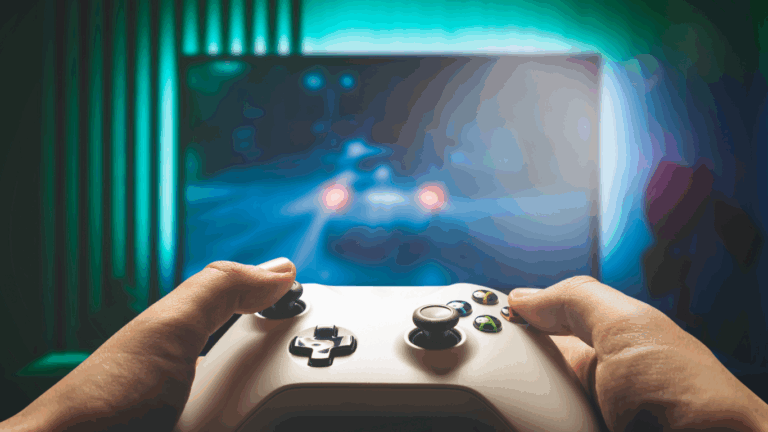Intro: The State of Play This Week
It’s been a packed week in gaming—one of those stretches where if you blink, you miss something major. We’ve seen franchise-defining titles drop, long-awaited release dates finally land, and a few surprise moves from big studios that are sending ripple effects across the industry.
This roundup cuts through the noise. Whether you’re a console diehard, PC builder, or just trying to keep up, here’s the essential info you need. From huge launches to small patch tweaks, from boardroom shakeups to grassroots fan movements—this is everything that matters right now, stitched together so you know what’s real and what’s just background noise.
Let’s break it down.
Major Title Drops and Release Dates
This week came with a few heavy hitters—and a couple of curveballs. Leading the charge is the long-awaited launch of “Phantom Core,” a cyberpunk-heavy RPG that’s already topping charts on Steam and PS5 in less than 48 hours. Early access for “Raidfall: Exodus” also opened up, giving fans of squad-based shooters something fresh to chew on. Initial feedback? Fast-paced, minimal fluff, with a tactical bent that’s pulling in the Halo crowd.
Not everything hit its mark, though. “Fableborn Rewritten” was hit with another delay, this time pushed to Q4 for what the devs call “narrative restructuring”—translation: they’re fixing a storyline that testers called confusing at best. Meanwhile, the indie gem “Stray Signal” quietly rolled out an updated demo that has sleeper hit written all over it. It’s flying under the radar but generating solid word-of-mouth from the early access crowd.
Gamers are hyped, but it’s more cautious hype lately. With constant delays and mid-launch patch frenzies becoming the norm, players are tuning their expectations and watching post-launch support more than glossy trailers. What’s landing now tends to lean sharp, streamlined, and community-aware—less bloat, more bite.
Studio Announcements and Industry Shifts
This week, the business side of gaming cranked the volume. The headline-grabber? Embracer Group quietly offloading a handful of studios after years of acquisition frenzy. It’s a reset moment for corporate gaming—buy less, focus more. Meanwhile, Microsoft and Riot Games announced a strategic partnership centering around cross-platform perks and Game Pass integration. No one saw that one coming, but it makes sense: subscriptions need muscle, and Riot’s got reach.
On the talent front, some serious names have jumped ship. A trio of lead designers from CD Projekt Red broke off to form their own studio, with whispers of a narrative-heavy sci-fi IP already in early prototyping. These micro-exoduses are more than drama—they’re shaping where innovation lands next.
Indies are staying restless, but smart. Instead of going head-to-head against megaliths, they’re leaning into genre-bending experiments and community-first funding models. Think co-op horror roguelikes funded through Discord. On the flip side, AAA is edging more conservative—polishing sequels, revisiting old IPs, and doubling down on live service strategies.
This isn’t just behind-the-scenes noise. These moves set the tone for what games get made, how they’re funded, and who makes the decisions.
Game Updates That Actually Matter
This week wasn’t just about new titles—it was about making the ones we already have better (or worse, depending on who you ask). Several major patches rolled out across big-name games, from tactical rebalancing in competitive shooters to smoother UI changes in still-thriving MMOs. Fortnite’s latest season update brought fresh mechanics and a surprisingly polished map overhaul. Elden Ring’s long-anticipated balance patch hit too, with smarter AI moves but tweaks that left bleed-build fans grumbling.
Quality-of-life fixes also slipped into a few cherished titles. Stardew Valley added long-requested inventory tweaks, and Destiny 2 quietly improved its matchmaking calibration. Small changes, but players noticed—and appreciated.
It wasn’t all smooth sailing. More than a few dev teams caught flak for abrupt nerfs that hit harder than advertised. Apex Legends faced backlash over a new armor tuning, while an Overwatch 2 hotfix sparked debate on Reddit over whether Blizzard is actually listening to its core player base. And of course, a few bugs slipped through QA nets, including a hilarious (and infuriating) texture issue in Call of Duty that turned some maps into literal eye strain zones.
Bottom line: updates keep games alive, but they’re a fine line between fixing and frustrating. This week, it was both.
Hardware Hype: Console and PC News
The rumor mill is grinding hard this week. Sony and Microsoft are both dropping crumbs about their next-gen consoles. Whispered specs hint at faster load times, upgraded ray tracing, and better cooling—but nothing concrete beyond a few leaked photos and dev-kit mentions. What’s real? Hard to say. What’s certain? Preorder frenzy will erupt the nanosecond they announce anything official. Limited drops and stealth restocks of current-gen consoles aren’t helping the hunger.
On the PC side, the game is speed. NVIDIA’s latest mid-gen GPU refreshes are pushing higher frame rates with more efficient power use, while AMD’s teasing new silicon that could shift loyalties. Peripherals are also growing smarter—think keyboards with integrated OLEDs and mice with haptics made to mimic in-game feedback. Cooling tech is having a moment too, with smaller form-factor builds now rivaling full towers in performance.
This new wave of hardware isn’t just about flexing specs. It’s shaping design choices across major titles. Developers are leaning into dynamic environments, real-time physics, and AI-generated world elements because players now have the gear to actually run them. As the bar for performance rises, so does the potential for what games can become.
For a deeper dive on what’s coming and why it matters, check out The Impact of Next-Gen Consoles on Current Gaming Trends.
Community Watch: What Gamers Are Talking About
This week, the gaming community didn’t hold back. The biggest viral moment? A streamer locked themselves in a bathroom mid-DMZ match on Warzone, narrating a full tactical breakdown while their squad crumbled outside—20M+ views later, it’s already being memed across TikTok and Twitter.
Reddit flared up over an indie dev AMA gone sideways. The thread blew up after the developer called out their publisher for broken promises and withheld payments. Discord mirrored the storm—several fan servers even rallied support campaigns, pushing the game back into the Steam top sellers list. Goes to show: the player base has teeth when united.
In esports, two powerhouse teams folded last-minute from the Valorant Global Tour, citing burnout and contract issues. Their withdrawals cracked the bracket wide open, leading to a wild upset: a rookie team from Southeast Asia took down a longtime dominant roster. Add shaky rule enforcement and a few stunning solo clutches, and competitive circuits are once again looking chaotic—in the best way.
Quick Stats: What the Numbers Say
No fluff, just raw movement. This week’s top-seller board didn’t offer many surprises at the top—“Call of Duty: Modern Warfare III” held strong off the back of recent updates, while “Baldur’s Gate 3” stuck around thanks to its ongoing console momentum. But the quiet climber? “Palworld,” the monster-survival hybrid that bounced from niche indie circles to global buzz, now cracking top 10 on Steam.
Over on Twitch, viewership stayed solid for the usual suspects—“League of Legends,” “GTA V,” and “Valorant”—but saw a bump with the launch weekend of “Hades II” Early Access. The spike wasn’t massive, but the game’s reappearance sent a ripple through creator circles and stream titles across the board.
YouTube gaming content leaned long-form this week, especially with essay-style deep dives into “Starfield’s” recent patches and “The Last of Us Part II Remastered.” The usual shorts were there, but higher engagement clustered around breakdowns, reviews, and challenge runs.
On Steam, keep an eye on the underdogs. “DREDGE” re-entered the top 20 following a modest DLC drop and a flurry of word-of-mouth. Don’t call it a comeback—just steady momentum from a strong core game and smart updates.
Final Take: What It All Means
Look beyond the trailers and patch notes—this week told a bigger story. Studios are tightening alliances, hardware makers are playing the long game, and gamers are driving the conversation in real time. Momentum is shifting faster than usual. One week it’s all about a surprise drop; the next, a niche feature update ignites the entire subreddit. In short: it’s no longer just the big-name titles setting the tone. It’s the sum of small signals that tells you where things are heading.
If you’re a gamer, now’s the time to be watching patterns, not just headlines. Why does another indie studio acquisition matter? Why is that Twitch viewership spike under a lesser-known title worth tracking? Because these moments—when connected—hint at what’s coming next, from genre revivals to platform strategies.
2024 is shaping into a year of acceleration, not just evolution. Studios are building faster, learning quicker, and iterating in public. The best way to keep up? Stay sharp, stay informed, and game on.












































































































































































































































































































































































































































































































































































































































































































































































































































































































































































































































































































































































































































































































































































































































































































































































































































































































































































































































































































































































































































































 Valmira Mythvessa, the visionary founder of Console Power Up Daily, created the platform with a mission to empower gamers through knowledge and insight. With her dedication to gaming culture, she built a hub that delivers the latest gaming news, expert tips and tricks, previews of upcoming releases, and in-depth hardware insights. Her leadership reflects a commitment to keeping the gaming community informed, inspired, and equipped to elevate their play every single day.
Valmira Mythvessa, the visionary founder of Console Power Up Daily, created the platform with a mission to empower gamers through knowledge and insight. With her dedication to gaming culture, she built a hub that delivers the latest gaming news, expert tips and tricks, previews of upcoming releases, and in-depth hardware insights. Her leadership reflects a commitment to keeping the gaming community informed, inspired, and equipped to elevate their play every single day.